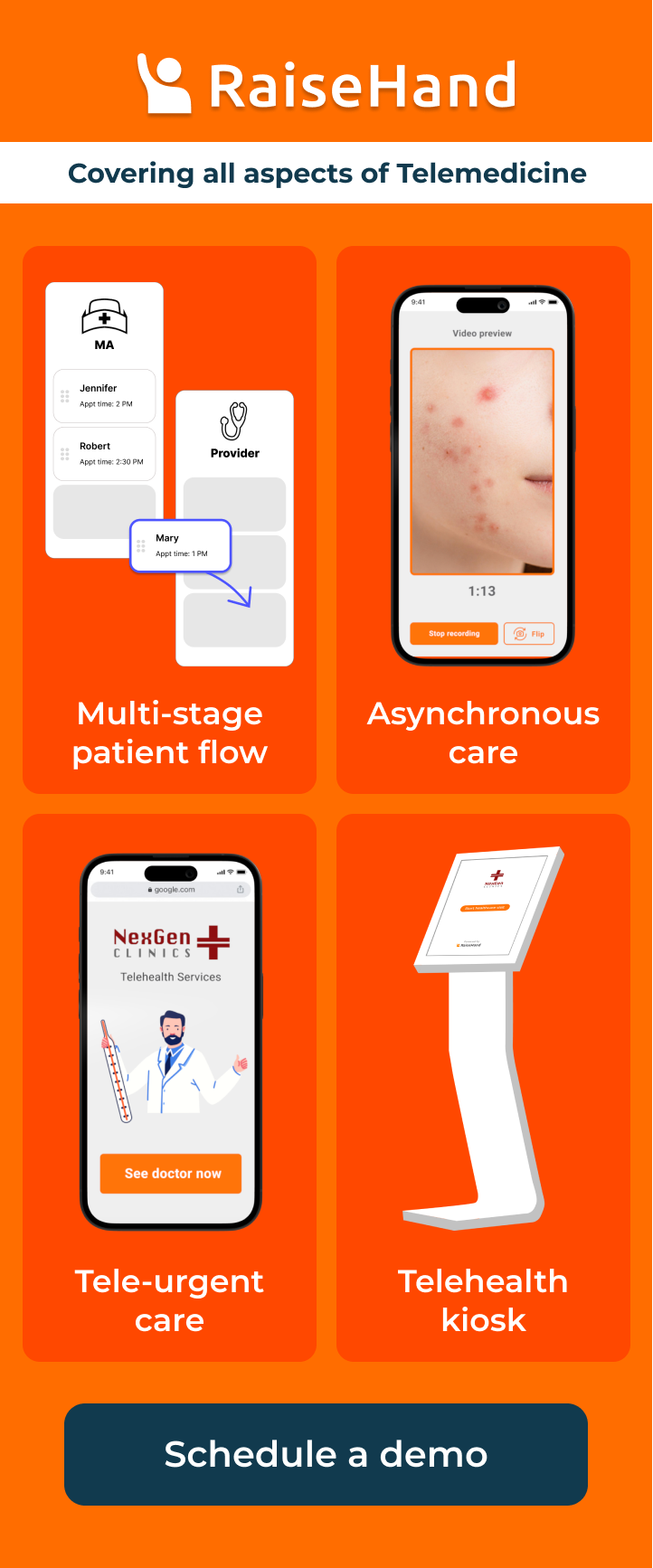Telehealth Training
How can I learn telehealth? What are the benefits of telehealth training? What should I expect from telehealth training?
6 min read
By Team RaiseHand

The healthcare landscape is transforming significantly, with telehealth becoming crucial in modern patient care. Telehealth, or telemedicine, uses telecommunication technology to provide healthcare services remotely. This blog discusses the importance of telehealth training for providers, exploring training options, answering FAQs, and highlighting resources for further exploration.
Contributors:
Written by Sai Sandesh; Edited by Rohit Budania; Lead image by Shivendra Singh
Curious to see our telemedicine product in action? Schedule a free demo today and be wowed by Raisehand
Schedule a demo
Start a collaborative math board session
Search by name:
Search by tag:
Latest blogs
Remote monitoring healthcare companies
Remote monitoring healthcare companies

Part time and full time remote healthcare jobs
Part time and full time remote healthcare jobs


